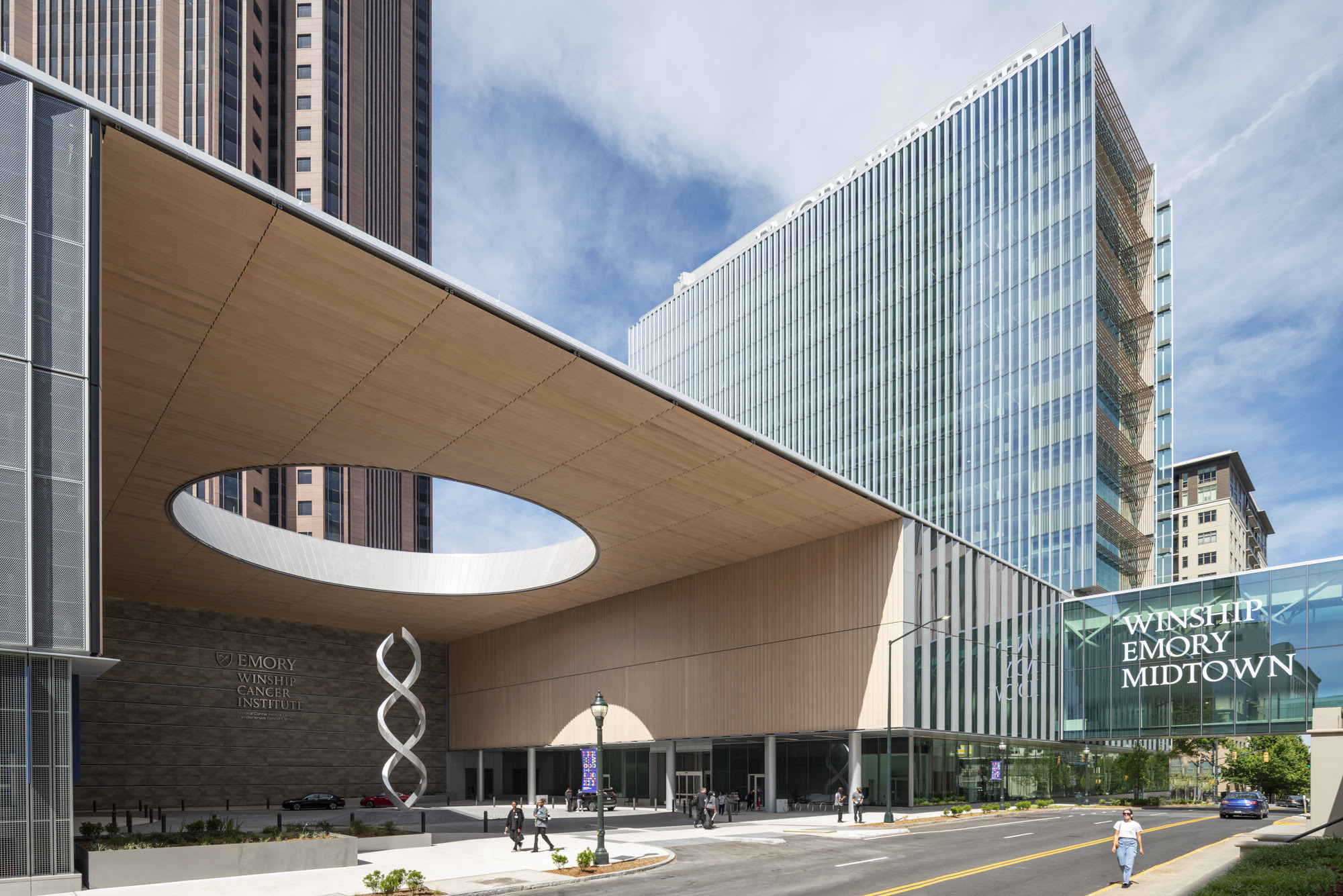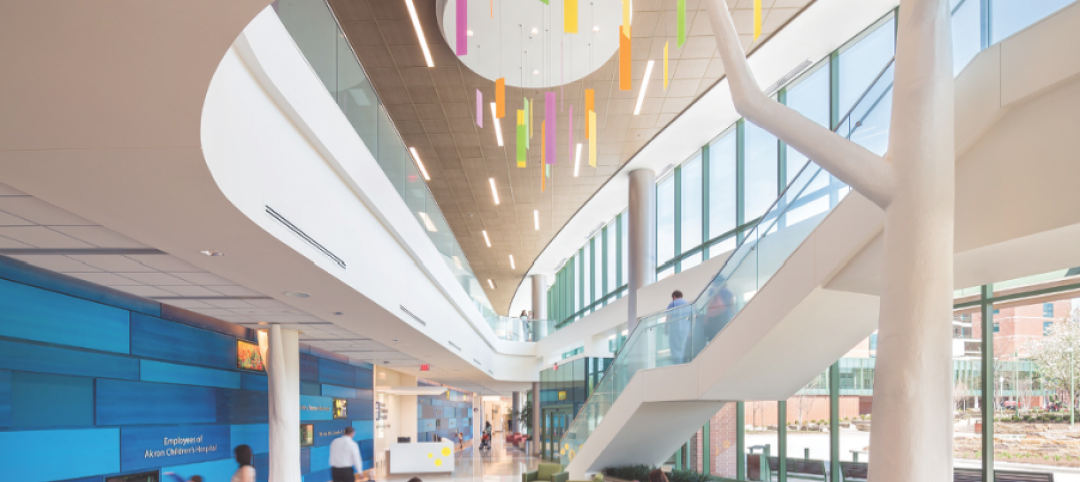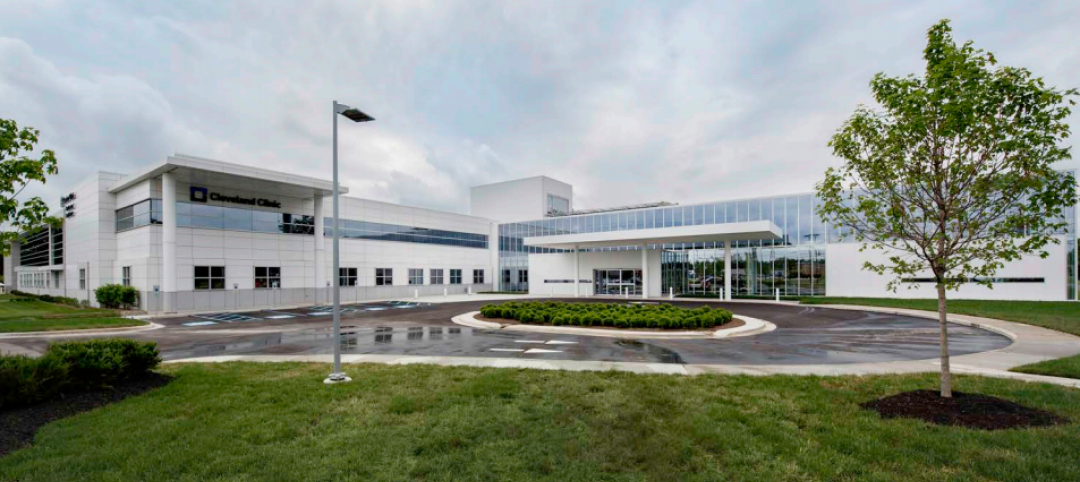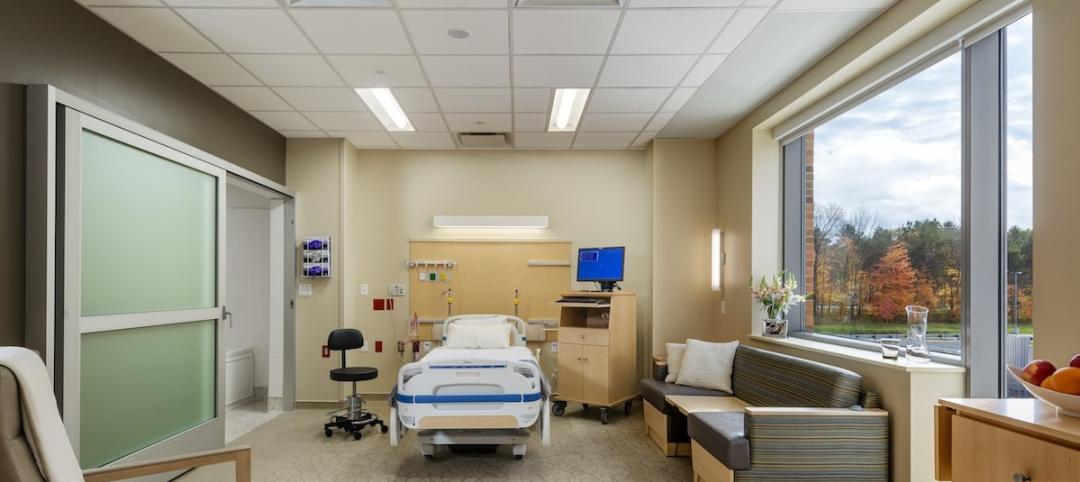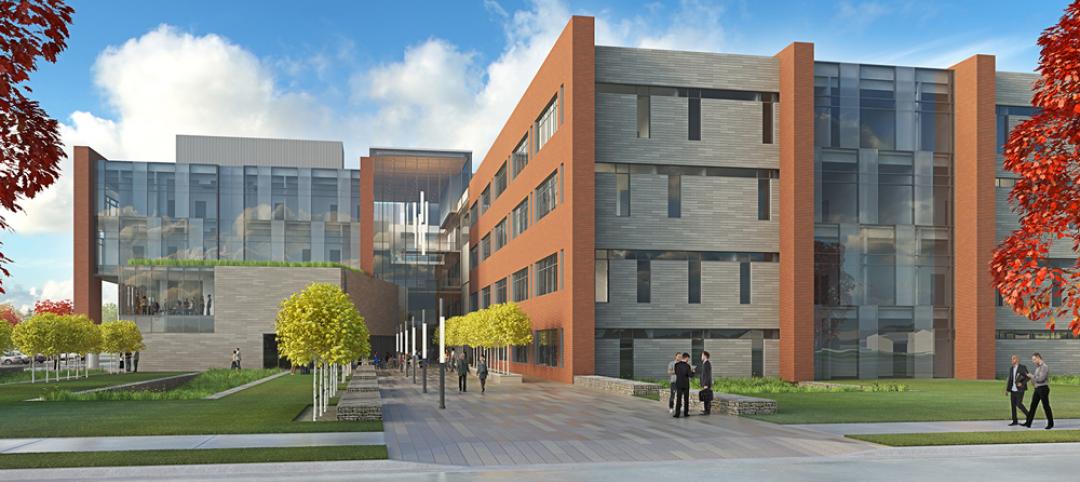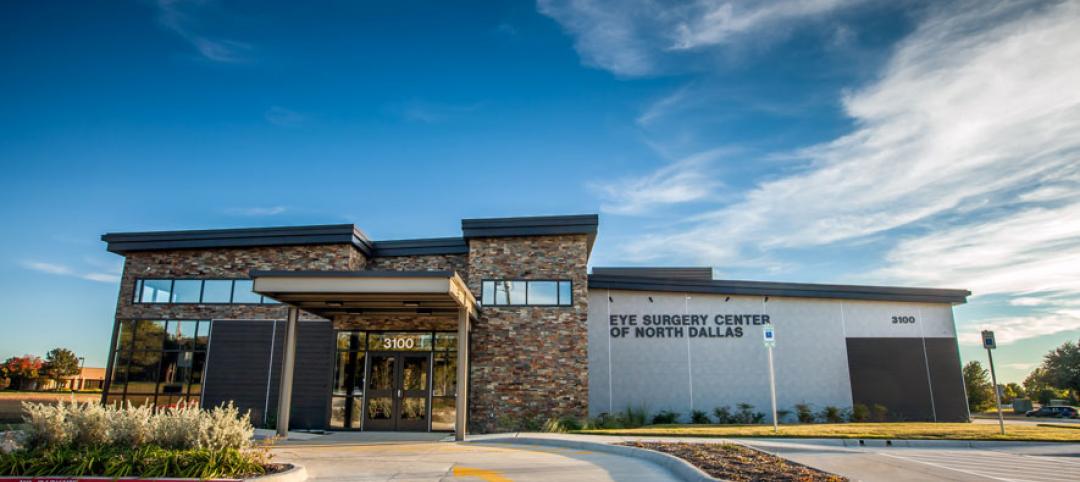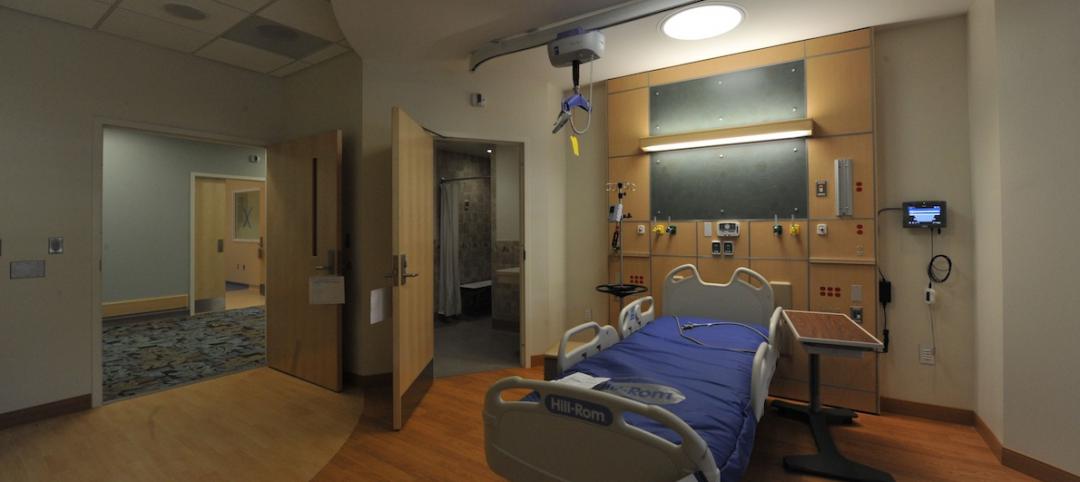In May, Atlanta’s new Winship Cancer Institute at Emory Midtown welcomed its first patients. The 17-story, 450,000-sf facility adds inpatient, outpatient, and research facilities to Emory University Hospital Midtown and Winship Cancer Institute.
Designed by Skidmore, Owings & Merrill (SOM) and May Architecture, the facility includes comprehensive oncology facilities—including inpatient beds, surgical capacity, infusion treatment, outpatient clinics, diagnostic imaging, linear accelerators, and areas for wellness, rehabilitation, and clinical research.
To design the facility, SOM and May Architecture used a highly collaborative process involving more than 160 stakeholders across Winship’s leadership, patients, clinicians, volunteers, staff, and construction teams.
The building features two-story care communities, each focused on a specific type of cancer. Services typically distributed throughout a hospital are instead organized into one-stop destinations that combine exam, consultation, infusion, and supportive functions.
These care communities reduce or eliminate patients’ waiting times. In addition, they bring fellow patients and families together and allow specialists to visit both inpatients and outpatients without having to leave the two floors.
The care communities informed the exterior’s two-story façade increments. The building’s transparent storefront welcomes patients and visitors with a drop-off valet area that leads into the main lobby. Amenities throughout the building include a retail boutique, pharmacy, wellness center, cafe, and multipurpose spaces for future offerings of yoga, music therapy, education, and art therapy.
Thanks to an energy-efficient design, the Winship Cancer Institute will expend 40% less energy annually than the average Atlanta hospital, according to a press statement. The building also features energy-efficient recovery mechanical equipment, with chilled beams and direct-outside air units. The high-performance facade optimizes glazing and window-to-wall ratios. And water use is reduced through the collection of stormwater for irrigation and chiller plants.
On the Building Team:
Owner: Emory University Healthcare
Architect and structural engineer: Skidmore, Owings & Merrill (SOM)
Clinical architect: May Architecture
MEP and lighting: Newcomb & Boyd
Civil engineering and landscape design: Kimley-Horn
Construction manager: Batson-Cook Construction

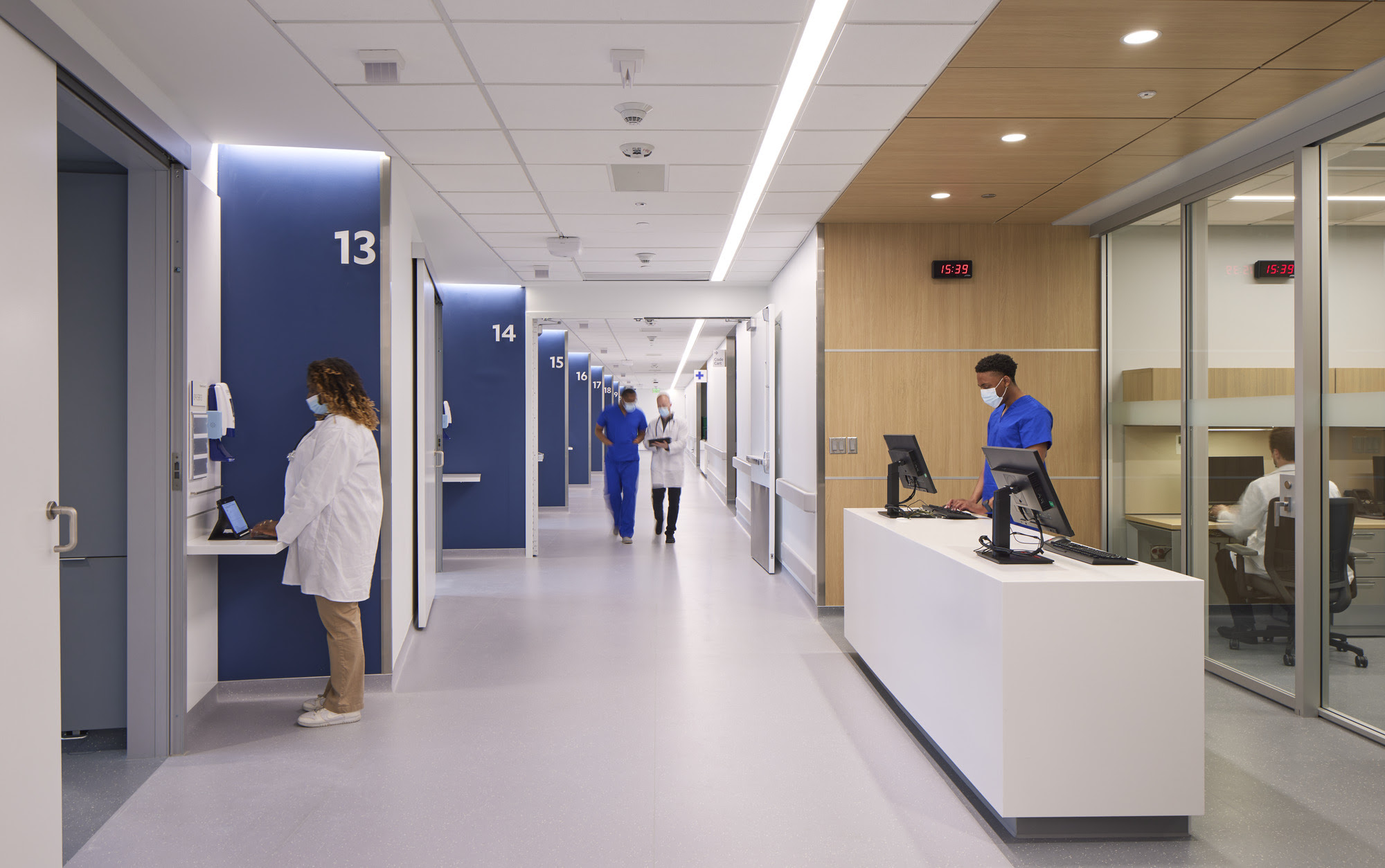
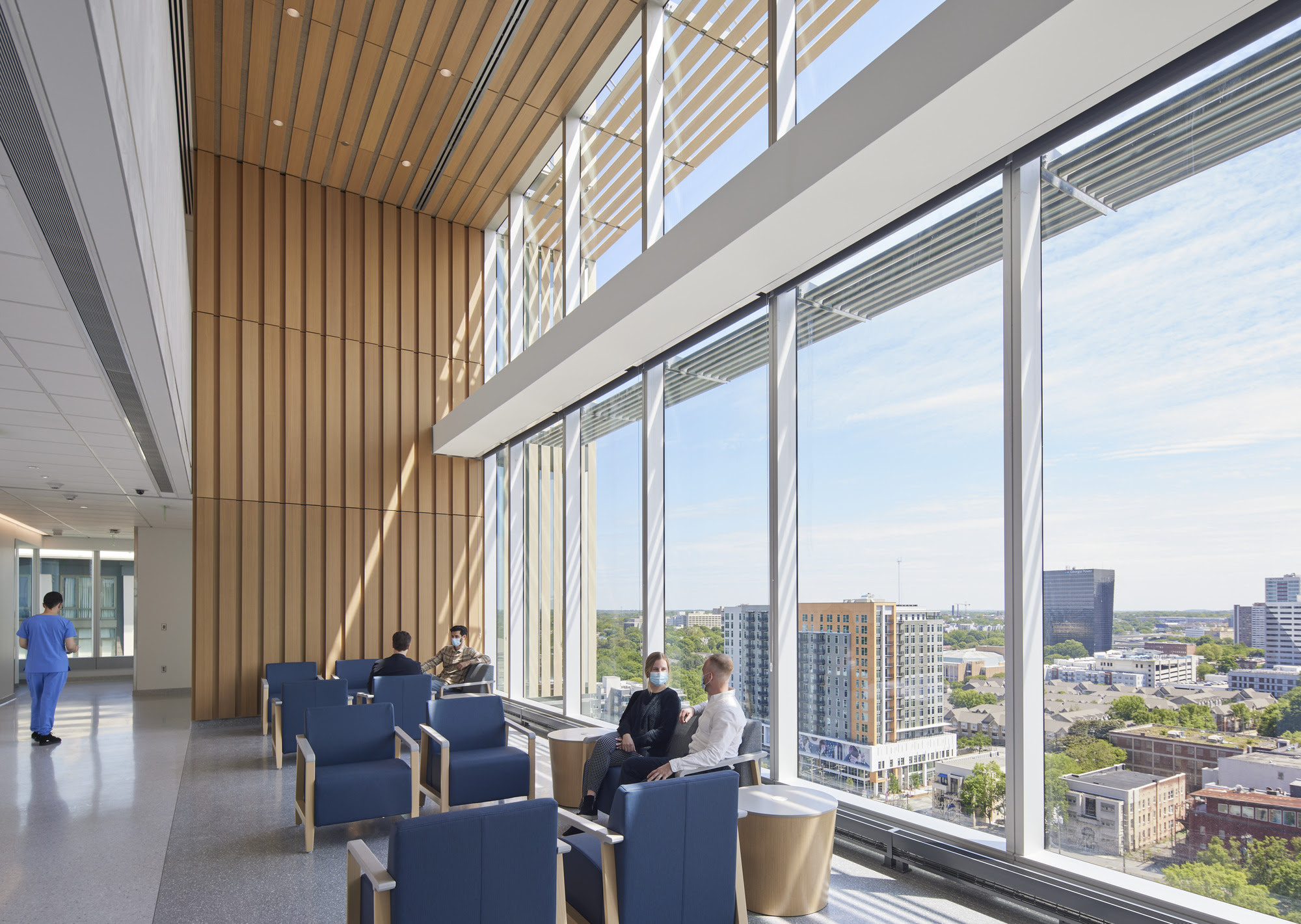
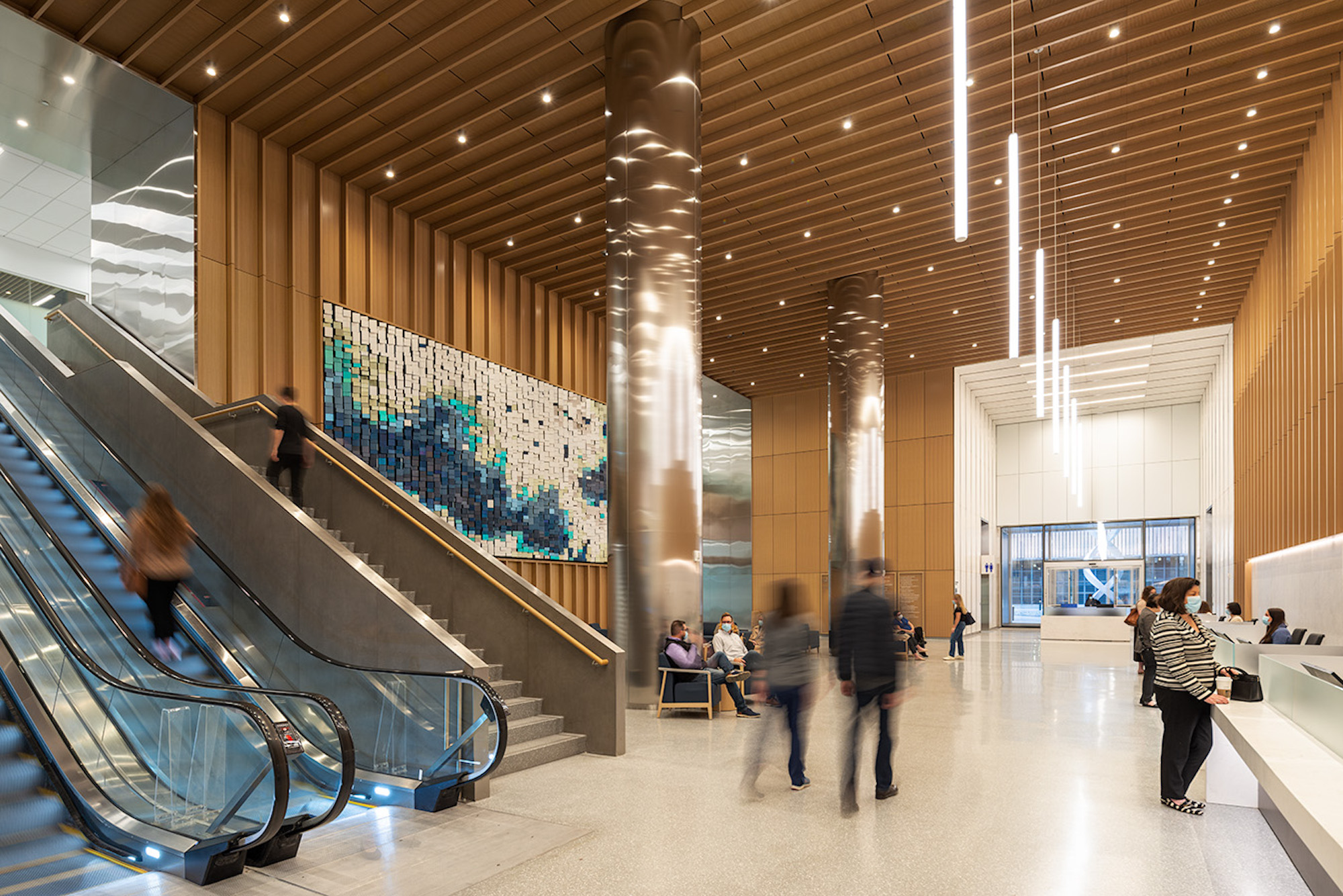
Related Stories
Giants 400 | Aug 6, 2015
HEALTHCARE AEC GIANTS: Hospital and medical office construction facing a slow but steady recovery
Construction of hospitals and medical offices is expected to shake off its lethargy in 2015 and recover modestly over the next several years, according to BD+C's 2015 Giants 300 report.
Contractors | Jul 29, 2015
Consensus Construction Forecast: Double-digit growth expected for commercial sector in 2015, 2016
Despite the adverse weather conditions that curtailed design and construction activity in the first quarter of the year, the overall construction market has performed extremely well to date, according to AIA's latest Consensus Construction Forecast.
Healthcare Facilities | Jul 23, 2015
David Adjaye unveils design for pediatric cancer treatment center in Rwanda
The metallic, geometric façade is based on the region’s traditional Imigongo art.
Healthcare Facilities | Jul 22, 2015
Best of healthcare design: 8 projects win AIA National Healthcare Design Awards
Montalba Architects' prototype mobile dental unit and Westlake Reed Leskosky's modern addition to the Cleveland Clinic Brunswick Family Health Center highlight the winning projects.
Healthcare Facilities | Jul 8, 2015
From Subway to Walgreens, healthcare campuses embrace retail chains in the name of patient convenience
Most retail in healthcare discussions today are focused on integrating ambulatory care into traditional retail settings. Another trend that is not as well noted is the migration of retailers onto acute care campuses, writes CBRE Healthcare's Craig Beam.
Healthcare Facilities | Jul 6, 2015
The main noisemakers in healthcare facilities: behavior and technology
Over the past few decades, numerous research studies have concluded that noise in hospitals can have a deleterious effect on patient care and recovery.
University Buildings | Jun 29, 2015
Ensuring today’s medical education facilities fit tomorrow’s healthcare
Through thought-leading design, medical schools have the unique opportunity to meet the needs of today’s medical students and more fully prepare them for their future healthcare careers. Perkins+Will’s Heidi Costello offers five key design factors to improve and influence medical education.
Sponsored | Healthcare Facilities | Jun 23, 2015
Texas eye surgery center captures attention in commercial neighborhood
The team wanted to build an eye surgery center in an already established area but provide something clean and fresh compared to neighboring buildings.
Healthcare Facilities | Jun 16, 2015
Heatherwick’s design for cancer center branch has ‘healing power’
The architect describes it as “a collection of stepped planter elements”
Healthcare Facilities | May 27, 2015
Roadmap for creating an effective sustainability program in healthcare environments
With a constant drive for operational efficiencies and reduction of costs under an outcome-based healthcare environment, there are increasing pressures to ensure that sustainability initiatives are not only cost effective, but socially and environmentally responsible. CBRE's Dyann Hamilton offers tips on establishing a strong program.


